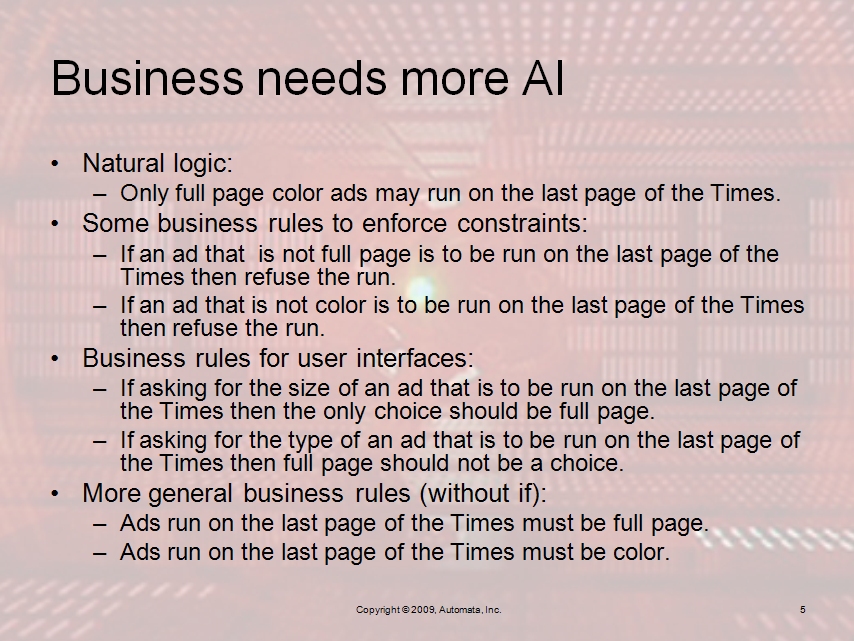I couldn’t agree more with these points from Giles Nelson’s article in CIO on BPM and event processing (as highlighted by TIBCO’s Paul Vincent):
…we need to take a different view of BPM technology and try to see how it can be used to make knowledge-based business more ‘operationally responsive’… …the potential for creating real business value by bringing together the two disciplines of event processing and BPM is substantial…
As Paul notes, this follows Progress’ acquisition of Savvion (i.e., CEP vendor buying BPM vendor).
I am glad to see other leaders pursuing the vision of knowledge-based enterprise. As I discussed, IBM is getting there (but SAP seems out of the picture). Will Oracle take the lead?

